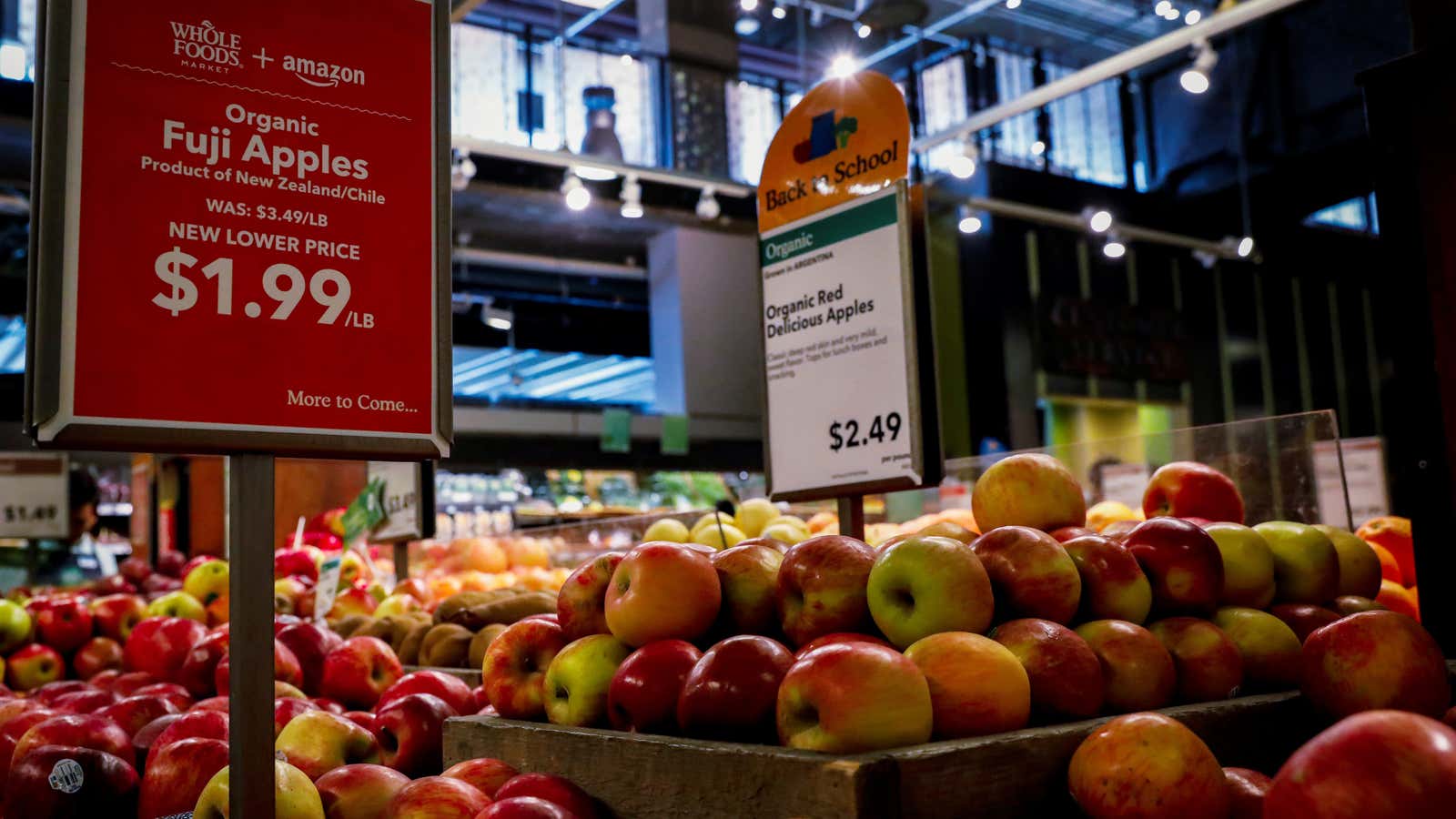There’s not a lot of overlap between the people who sign up for Amazon Prime, and the people who shop at Whole Foods.
A new research report from Morgan Stanley estimates that 80% of Prime members in the US, or some 38 million people, do not currently buy things at Whole Foods, the high-end grocery chain that Amazon bought for $13.7 billion in June. The same report estimates that 38% of Whole Foods shoppers, or about 5 million US households, aren’t currently subscribers to Prime, Amazon’s signature $99-a-year membership program.
That’s great news for both businesses.
Over the next two years, Morgan Stanley expects Amazon to convert half of those 5 million Prime holdouts into Prime subscribers. For Whole Foods the effects are even greater. Based on Amazon’s commitment to lowering prices at Whole Foods and to invigorating its delivery operations, Morgan Stanley sees the grocery chain adding 15 million new customers over the next five years, more than doubling its current shopper base. They also estimate that 33 million US households live within five miles of a Whole Foods store.
Prices are still the main reason why people don’t shop at Whole Foods. Survey data from Morgan Stanley found that 69% of people in 2017 said they don’t shop at Whole Foods because there are lower prices somewhere else. In 2016 and 2015, 70% of people felt that way.
Whole Foods has tried for several years to lower prices and undo its “whole paycheck” image, with limited success. Amazon, on its first official day as the store’s owner in late August, slashed prices on organic avocados, eggs, salmon, kale, and ground beef, among other popular items. The deep price cuts have already boosted traffic to Whole Foods stores by 25%, according to data from Foursquare. Amazon has also listed about 2,000 products from Whole Foods 365 Everyday Value, the chain’s private label, on its e-commerce website.
